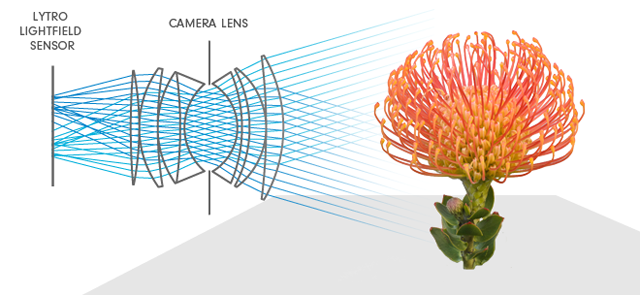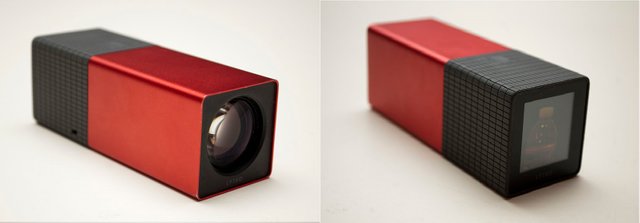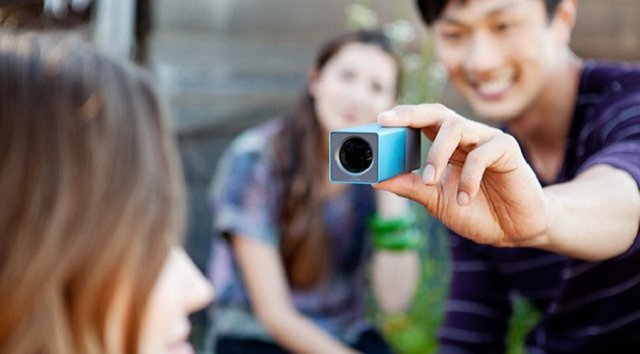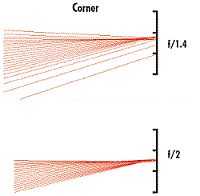Light Field Camera: Harnessing Light Field Technology
Hello guys,
In this article, I thought it would be fun to explicate about something that you may have never heard of before but has been around for a little while, and that is Light Field Camera.
What the heck is Light Field Camera? How does it work?
A light field camera, also known as plenoptic camera, captures information about the light field emanating from a scene; that is, the intensity of light in a scene, and also the direction that the light rays are traveling in space. This contrasts with a conventional camera, which records only light intensity.
source
It’s a special type of camera that lets you refocus the image after you take the photo. To understand how it works, you have to understand how a regular camera works.
Basically, what happens is that you have a lens and then a 2d sensor where all the light rays come onto the sensor and the sensor just measure as the color, intensity of a single plane of focus and then it captures that single image as a file for you to be able to view it.
Light field camera doesn't just capture a 2d sensor, it has thousands of little micro arrays and micro lenses that combines the image not just from light coming from one direction like it's projected onto a 2d sensor but it actually captures light coming in different directions.
The reason we have different focal lengths is because you're focusing light rays from different angles onto the sensor, so if you focus it from one angle, you're gonna go further and if you focus it from another angle, it's only gonna capture light from closer things.

[3][Light field array. Arstechnica.com]
What the light field array does is it captures from multiple fields of view and it basically captures a whole section of light from a different point in space. That means that when you go into the editing image of the special software that it comes with, you choose light rays based on the direction of your choice which basically converts to a different focal length and area of focus but you really can adjust the focus afterwards.

[4][Lytro Illum editing software. Lightfield-forum]
The trade-off of this is that you get reduced resolution of the final image after it's been processed and converted into a 2d image, that's because you're basically taking what might be 40 megapixel image, you have to use the same amount of information to not just capture one focal length but also all of them in a certain range.
 [5][Lytro Illum light field camera demonstration. Wikipedia]
[5][Lytro Illum light field camera demonstration. Wikipedia]
You can adjust the focus afterwards but it's going to be a smaller resolution image. There's a company that produces such cameras that you can actually buy for an affordable price and that's a company called “Lytro”, they have the “Lytro Illum” which is a true light field camera, the resolution of which is 40 mega ray's but mega ray's are not to be confused with megapixels, mega ray's captures different rays of light so you're not capturing the number of pixels but actually individual rays of light.
 [6][Front and back of a Lytro, the first consumer light field camera. Wikipedia]
[6][Front and back of a Lytro, the first consumer light field camera. Wikipedia]
You can imagine how the resolution of the final image is going to be smaller because you're capturing basically all the rays of light, not just the pixel sensitivity of only the rays of light in one particular focal length if that makes sense.
If you're taking specialized macro photos or something like that where you want maybe a really long depth of field, this camera might be useful for you. Lytro is currently pushing this technology to Virtual Reality VR, and you can imagine how it’ll be on a VR headset.
I’d like to read what you guys think, maybe you’ve used this sort of camera before or you’ve already experienced this on a VR headset recently, reply this post, share your thoughts and don’t forget to smash that upvote button.
References: 1 - 2 - 3 - 4
Image sources: 1 - 2 - 3 - 4 - 5 - 6


GIF made by @foundation
Thanks to @camzy & @samstickkz for this amazing toon.




▀
The Lytro Illum is till quite expensive but the first version is cheaper.
Thanks for dropping by.
Fascinating!
Wow, I had never heard about this before, but it was a very interesting read. Thanks!
You're most welcome.
Nice cam tech
Woooow so nice I like it Thank you for sharing dear @enemovie
I like it and follow you hop[e for the best
Thanks for visiting.
That's really fascinating technology and I've read about those cameras before. The technology is only going to get better and creative people are going to find new interesting uses in the future, I'm sure.
It's getting better every minute, the VR verson is already out.
Wow @ememovic what's price?
The Lytro Illum is around $1,299.00 on Amazon.
Hi, thanks.
Great information, I didn't know that! I am looking forward to more of your posts.
BTW I want to provide lots of value on Steemit as well. Therefore, I now started writing here on this platform about artificial intelligence. Check out my latest blog post --> https://steemit.com/technology/@martinmusiol/understanding-artificial-intelligence-blog-post-3-how-does-ai-identify-objects-in-images
I follow you know, resteemed and liked your post.
Best,
@martinmusiol
Thank you.
Awesome technology.. I would love to but this camera
It's cool.
Wow the level of high tech invention coming out nowadays is so cool and amazing. Thanks for bringing us up to speed. And a happy new year in advance bro